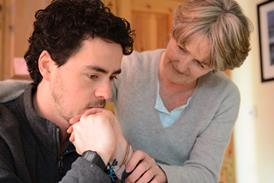Chris Ryan and James Balmain highlight the increased adoption of flexible healthcare, as the pandemic becomes a “super-catalyst” to an already- underway shift toward virtual care
![]()
This is paid-for content from our commercial partners. Find out more
The pandemic kickstarted a new age of flexibility that no-one could have predicted. Spearheaded by remote working that resulted during global lockdowns, all industries have seen a pivot to a ‘virtual’ model, transforming how we work, buy groceries, or even see our healthcare professionals.
Sponsored by

The drivers for transformation in healthcare have been particularly strong for systems that deliver specialty services. The pandemic placed increased pressure on capacity and resources within hospitals and other clinics, forcing appointments to be rescheduled or, worse, cancelled – adding delays to already strained waiting lists. Furthermore, the crisis impaired patients’ ability and desire to physically attend clinics due to the requirement to socially distance and stay at home.
Challenges faced during the pandemic are ushering in an age of flexible healthcare that enables the industry to provide care and support in numerous formats. Be it in- person, phone, video, or asynchronously, flexibility will ease pressure and deliver the right care, at the right time, right as the patient and provider demand.
Beyond the pandemic
It is well known that covid-19 restrictions increased booking difficulties for in-person specialist appointments. Yet, in-person visits have always posed challenges. People may have accessibility issues that make attending a clinic difficult – being unable to drive or catch public transport due to disability, location or illness; or it could be difficult for them to take time off from work or home responsibilities. Like all travel, attending appointments also has a significant impact on the environment. Scottish drivers alone generated around 6.2 billion grams of CO2 in 2020 attending clinician appointments. When appropriate, virtual consultations have already proven their value as an alternative to traditional in-person care.
Take for example the Scottish Government’s Near Me remote consultation service, which uses Attend Anywhere for healthcare consultations. Near Me is a prime example of how flexible healthcare has been maximised over the past year, going from from 7,000 remote consultations in 2019 to over a million a year today. This exponential expansion occurred because Near Me enables patients to see their clinician without leaving the house, reducing infection rates. However, in a recent survey of 5,000 patients and clinicians, 75.1 per cent of patients and 87.9 per cent of clinicians said Near Me will remain a valuable service once social distancing is no longer required, listing benefits such as improved access to services, greater convenience convenient, time savings and environmental impact.
A closer look at the future of healthcare
In the coming months and years, we will see increased adoption of flexible healthcare as the pandemic begins to ease. Even as hospitals reactivate their in-person services, the ever-growing backlog of waiting consultations, patient preference for convienience, and a range of operational and economic pressures such as limited waiting room space available mean that hospitals will need to support a much larger number of video consultations in the years ahead.
Furthermore, we will see more of a movement to asynchronous communication between patients and their care team, particularly amongst technologically capable patients with chronic medical conditions – who would rather initiate healthcare on demand than attend regular routine visits.
Induction Healthcare has led the flexible healthcare movement since before the pandemic, developing technology to help facilitate delivery of quality care in safe and secure online environments. Induction Switch, the #1 app used by over 210,000 NHS doctors, helps clinical teams communicate more effectively, while Induction Zesty, a leading patient portal, is used by more than 280,000 patients to remotely book and access their appointments, read their clinical letters, and exchange clinical information with their care teams. Attend Anywhere’s video consultation technology is a similarly trusted partner to the NHS, with 90 per cent of Trusts in the UK currently utilising its video services.
Together, these solutions put patients in better control of their own healthcare management, while allowing providers to consult in the optimal way for each case. They represent a new future where delivery of healthcare is not limited by physical resources and constraints.
The easing pandemic was a “super-catalyst” to an already- underway shift toward flexible, online care, and it has made providers and patients alike increasingly comfortable with these platforms. Now that we all have hope for a return to relative normalcy, we mustn’t undo the benefits of this rapid digital transformation. Flexible care is transformative and empowering for patients, clinicians and the industry as a whole. With fewer limitations and more choice, everyone can play their part in giving and getting better care…anywhere.


























